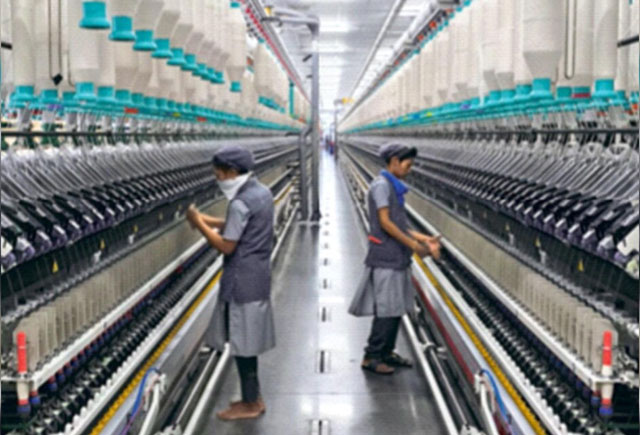Daijiworld Media Network – New Delhi
New Delhi, Nov 15: In a major relief to the stressed textile sector, the Ministry of Chemicals and Fertilisers on Monday revoked Quality Control Orders (QCOs) on 14 chemical intermediates, synthetic fibres and polymer resins that form the backbone of the textile value chain. The rollback comes as the industry reels under the impact of steep 50% US tariffs, which have triggered large-scale cancellation of export orders.
The withdrawn QCOs include crucial inputs such as Terephthalic Acid, Ethylene Glycol, Polyester Industrial Yarn (IDY) and Polyester Staple Fibre (PSF) — all areas where India is heavily dependent on imports. MSMEs had raised strong concerns that mandatory standards were driving up costs and adding regulatory hurdles.

The decision aligns with an internal Niti Aayog report, which warned that enforcing standards on raw materials and intermediates — rather than finished goods — had increased “operational complexities” for manufacturers. The Commerce Ministry has maintained that QCOs in other sectors, including toys and plywood, have successfully curbed substandard imports.
Industry players now expect other ministries to similarly revoke QCOs on viscose fibre and certain textile machinery. Niti Aayog had recommended revocation of QCOs on 27 products, suspension on 112, and deferment for 69 upcoming categories.
The Confederation of Indian Textile Industry (CITI) said the 50% US tariff, effective August 27, has severely hit India’s exports. The US accounts for nearly 28% of India’s textile and apparel shipments, valued at about $11 billion in 2024-25.
According to CITI, India’s textile exports fell 10.45% in September 2025, while apparel exports dipped 10.14%, resulting in an overall 10.34% decline year-on-year.
The Niti Aayog report sharply criticised the mandatory standards, stating that QCOs raised raw material prices by 10–30% due to limited BIS-certified suppliers and long licensing delays for foreign producers. These increased costs, it noted, cascaded down the fibre-to-garment chain and eroded export competitiveness.
Synthetic fibres and yarns, the report observed, do not pose direct health or safety risks and are globally regulated through voluntary standards and buyer audits, not factory-level certification. No major exporter — including China, Vietnam or Bangladesh — mandates such standards on raw materials.
The report also flagged supply gaps despite India’s large polyester capacity, especially in specialised grades needed for exports. In viscose, concentration among a few producers has created dependence and shortages, pushing many units to operate below capacity.
Between 2016 and 2025, QCO coverage expanded from less than 70 products to nearly 790, with nearly 70% targeting raw materials, intermediates and capital goods rather than finished products. While meant to enhance quality, this rapid expansion has posed serious challenges for MSMEs and export-driven sectors.
The think tank concluded that targeting raw materials through QCOs has led to unintended consequences, undermining competitiveness and the broader goals of the Make in India initiative.